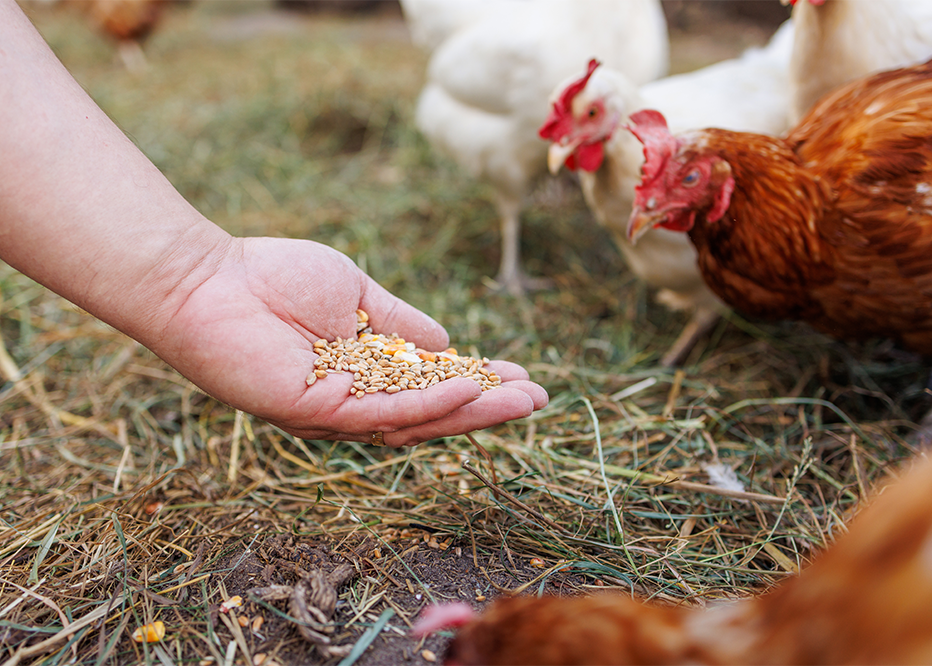Homesteading: Backyard Chickens

Before acquiring chicks, ensure you have a well-thought-out plan.
I’ve often heard it said, “If you want to start a homestead, you’ve got to start with chickens.” Raising backyard poultry seems like a great idea when you see those adorable baby chicks at the co-op, but there are several important factors to consider before jumping in.
- You must have a plan before buying chickens.
- Chicken upkeep is expensive.
- Chickens take a lot of time to care for.
- Backyard chickens are not allowed in some residential areas.
- Chickens are prey animals.
- Laying hens must have adequate light to lay year-round.
- You must choose the right breed for your needs.
- You must have biosecurity methods in place.
Before acquiring chicks, ensure you have a well-thought-out plan. Chicks require a heat source for the first six to eight weeks and need access to clean food, water, and bedding. A proper housing setup is crucial to protect them from predators and the elements. Additionally, consider the time commitment involved in daily care and maintenance.
While raising chickens can be cost-effective in some respects, it’s important to account for all expenses. Costs include purchasing or building a coop, buying feed, bedding materials, and potential veterinary care. Unforeseen expenses may arise, so it’s prudent to budget accordingly.
Caring for chickens involves daily tasks such as feeding, watering, cleaning the coop, and monitoring their health. It’s essential to assess whether you have the time to commit to these responsibilities consistently. Additionally, consider who will care for the chickens during vacations or emergencies.
Before starting a flock, research local ordinances regarding poultry ownership. Some residential areas may have restrictions on the number of chickens allowed, the presence of roosters, or specific housing requirements. It’s crucial to comply with these regulations to avoid potential conflicts.
Chickens are vulnerable to various predators, including hawks, raccoons, dogs, and even neighborhood cats. To safeguard your flock, ensure that their housing is secure with covered runs and buried fencing to prevent digging. Regularly inspect the coop for any potential entry points and reinforce them as needed.
Laying hens require approximately 16 hours of light per day to maintain consistent egg production. In Mississippi’s shorter winter days, supplemental lighting may be necessary. A 25- to 40-watt LED light can help extend daylight hours, but even with supplementation, hens may still experience a natural decrease in laying during the colder months.
Selecting a chicken breed that aligns with your goals is vital. Consider factors such as whether you want chickens for egg production or meat. Some breeds are better suited for hot, humid climates like Mississippi’s, while others may be more resilient to disease. Research breeds thoroughly to find the best fit for your needs.
Maintaining a healthy flock requires strict biosecurity practices. This includes isolating new birds before introducing them to your existing flock, controlling traffic to and from the chicken area, and maintaining cleanliness by regularly disinfecting equipment and housing. Be vigilant for signs of illness, such as coughing, sneezing, or decreased egg production, and take prompt action if any symptoms are observed.
Once you’ve completed all these steps, you’re ready to introduce chicks or chickens to your homestead.
By thoroughly addressing these considerations, you can set yourself up for success in raising backyard chickens in Mississippi. For more detailed information, refer to these resources.
Raise your Own Backyard Chickens
Backyard Biosecurity is the Best Defense Against Avian Influenza
Subscribe to Extension for Real Life
Fill in the information below to receive a weekly update of our blog posts.









